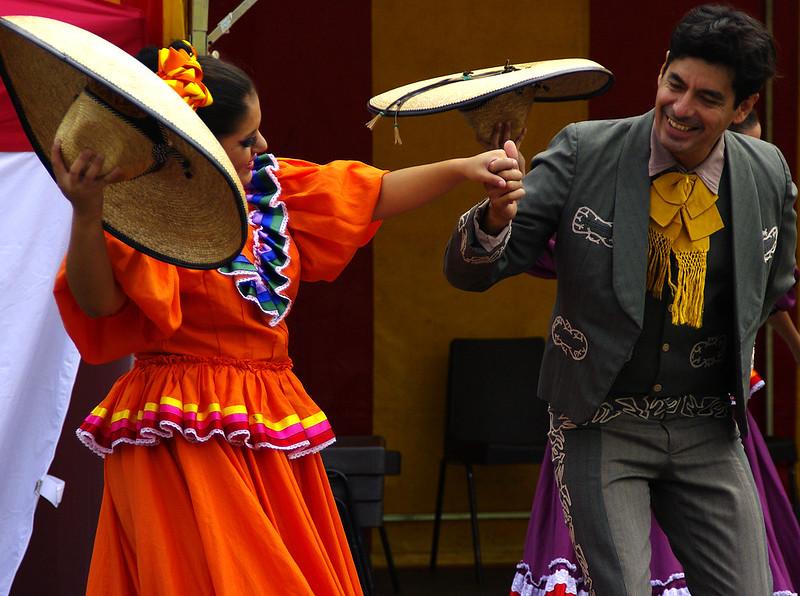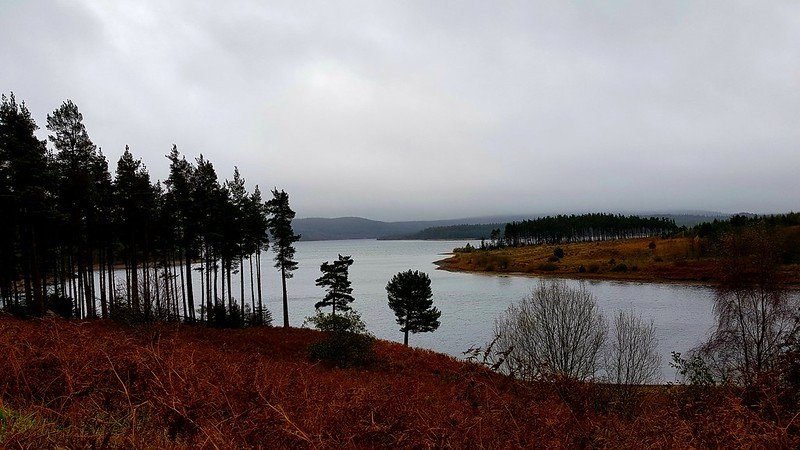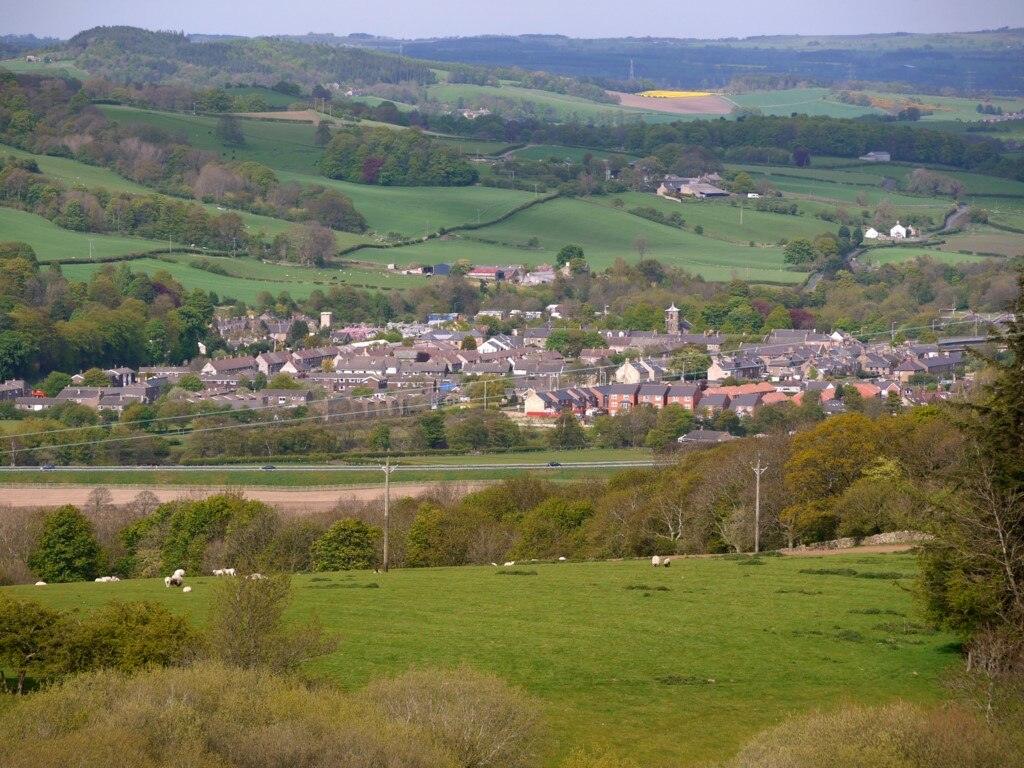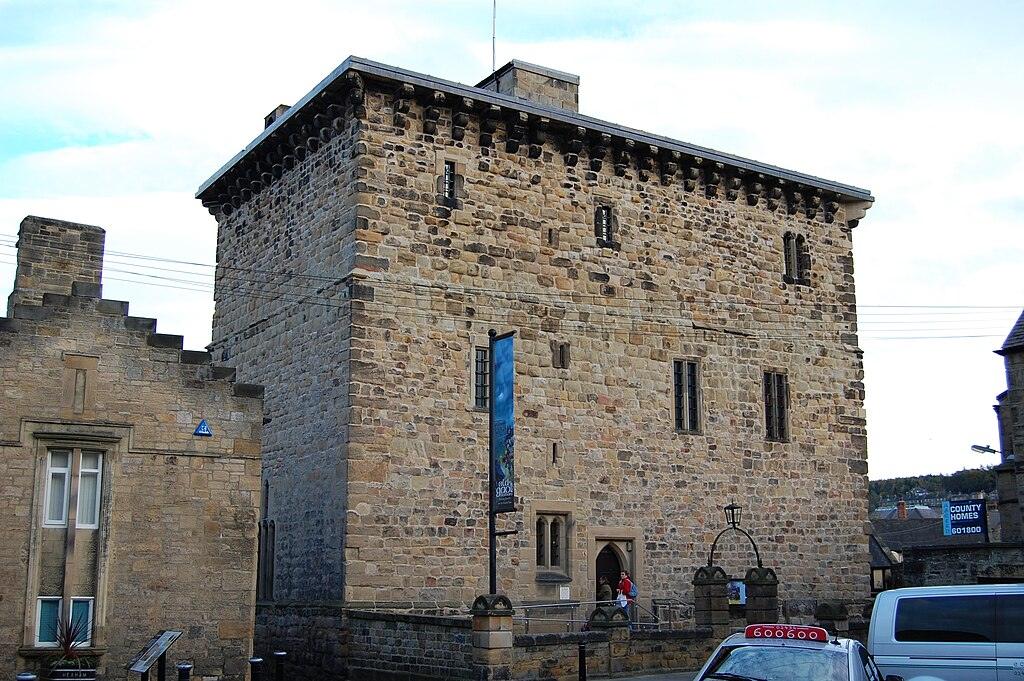The Northumberland Folk Festival, held annually in the picturesque landscapes of Northumberland, England, serves as a vibrant celebration of the region's rich cultural heritage. This festival not only showcases the musical talents of local and international artists but also highlights the deep-rooted traditions that have shaped the folk culture of Northumberland over centuries. From traditional songs and dances to the craftsmanship of local artisans, the festival is a testament to the enduring spirit of the community and its commitment to preserving its unique heritage.
The Historical Significance of Northumberland Folk Traditions
Northumberland's folk traditions are steeped in history, reflecting the region's diverse cultural influences. The area has been a melting pot of various cultures due to its geographical location, which has seen invasions and migrations from the Romans, Saxons, and Normans. This rich tapestry of history has contributed to a unique blend of folk music, dance, and storytelling that resonates with the local populace. Traditional songs often recount tales of love, loss, and the struggles of everyday life, serving as a historical record of the community's experiences.
The significance of these folk traditions extends beyond mere entertainment; they are a vital part of Northumberland's identity. Many of the songs and dances have been passed down through generations, often performed at community gatherings, weddings, and festivals. This oral tradition not only preserves the stories of the past but also fosters a sense of belonging and continuity among the people. The Northumberland Folk Festival plays a crucial role in keeping these traditions alive, providing a platform for both seasoned performers and emerging artists to share their craft.
Moreover, the festival serves as an educational opportunity for attendees, offering workshops and discussions that delve into the historical context of music and dance. Participants can learn about the origins of specific songs, the instruments used, and the significance of various folk practices. This emphasis on education ensures that the rich heritage of Northumberland is not only celebrated but also understood and appreciated by future generations.
In recent years, there has been a growing interest in folk traditions, both locally and globally. This resurgence can be attributed to a renewed appreciation for authenticity and craftsmanship in an increasingly digital world. The Northumberland Folk Festival stands at the forefront of this movement, championing the importance of preserving and promoting the region's folk traditions as a vital part of its cultural landscape.
Key Events and Performances at the Folk Festival
The Northumberland Folk Festival is renowned for its diverse lineup of events and performances that cater to a wide range of musical tastes. Each year, the festival features a mix of established artists and emerging talent, showcasing everything from traditional folk music to contemporary interpretations. Concerts are held in various venues, including outdoor stages, local pubs, and community centres, creating an intimate atmosphere that encourages audience participation and engagement.
One of the festival's highlights is the "Folk on the Green" event, where attendees can enjoy performances in a scenic outdoor setting. This event often features local bands and solo artists, providing a platform for homegrown talent to shine. The relaxed environment fosters a sense of community, as festival-goers gather to enjoy music, dance, and the beauty of Northumberland's natural surroundings. Additionally, workshops are offered throughout the festival, allowing participants to learn traditional dances, instrument playing, and songwriting techniques from experienced musicians.
Another key event is the "Folk Parade," which showcases the vibrant costumes and traditions of Northumberland's folk culture. Participants dress in traditional attire, representing various aspects of the region's history and folklore. The parade not only serves as a visual spectacle but also as a reminder of the importance of cultural heritage in shaping community identity. It is a celebration of the past, present, and future of Northumberland's folk traditions.
The festival also features special guest performances from renowned folk artists, drawing audiences from far and wide. These performances often include collaborations between local musicians and visiting artists, creating a unique blend of styles and influences. The Northumberland Folk Festival thus serves as a vital hub for cultural exchange, fostering connections between artists and audiences while celebrating the rich musical heritage of the region.
Local Artisans and Their Contributions to Folk Culture
The Northumberland Folk Festival is not solely about music; it also highlights the contributions of local artisans who play a crucial role in preserving and promoting folk culture. Craftspeople specializing in traditional arts, such as weaving, pottery, and woodwork, showcase their work at the festival, providing attendees with a tangible connection to the region's heritage. These artisans often draw inspiration from the stories and traditions of Northumberland, creating pieces that reflect the area's unique cultural identity.
One of the festival's key features is the artisan market, where local craftspeople display their handmade goods. This market not only supports local economies but also encourages the appreciation of traditional craftsmanship. Visitors can purchase unique items, from hand-carved instruments to intricately woven textiles, each telling a story of the artisan's skill and dedication. By promoting these crafts, the festival helps to ensure that these traditional skills are passed down to future generations.
In addition to showcasing their work, many artisans participate in workshops during the festival, teaching attendees about their craft. These hands-on experiences allow participants to learn directly from skilled artisans, fostering a deeper understanding of the techniques and materials used in traditional crafts. This educational aspect of the festival is essential for preserving the knowledge and skills that have been passed down through generations.
Furthermore, the collaboration between musicians and artisans at the festival highlights the interconnectedness of Northumberland's folk culture. Many musicians incorporate traditional instruments, such as fiddles and accordions, into their performances, which are often handmade by local craftsmen. This synergy between music and craftsmanship enriches the festival experience, creating a holistic celebration of Northumberland's cultural heritage.
Preserving Northumberland’s Musical Heritage for Future Generations
As the Northumberland Folk Festival continues to grow in popularity, the importance of preserving the region's musical heritage becomes increasingly evident. The festival serves as a vital platform for documenting and sharing traditional songs and practices, ensuring that they are not lost to time. By recording performances and hosting discussions on the history of folk music, the festival plays a crucial role in safeguarding Northumberland's musical legacy.
One of the key initiatives aimed at preserving this heritage is the establishment of a digital archive, which collects recordings of performances, interviews with musicians, and historical research on folk traditions. This archive serves as a valuable resource for future generations, providing access to a wealth of information about Northumberland's folk culture. By making this material available online, the festival ensures that the region's musical heritage can be appreciated by a global audience.
In addition to digital preservation, the festival actively encourages the participation of young musicians through mentorship programs and youth workshops. These initiatives aim to inspire the next generation of folk artists, providing them with the skills and knowledge needed to carry on the traditions of their forebears. By fostering a sense of pride in their cultural heritage, the festival helps to cultivate a new wave of musicians who are passionate about preserving and innovating within the folk genre.
Moreover, the festival collaborates with local schools and community organizations to promote folk music education. By integrating folk traditions into school curricula and community programs, the festival ensures that young people are exposed to the rich cultural tapestry of Northumberland. This educational outreach is essential for nurturing a love of folk music and encouraging future generations to engage with their cultural heritage.
The Northumberland Folk Festival stands as a beacon of cultural preservation, celebrating the region's rich heritage through music, dance, and craftsmanship. By highlighting the historical significance of folk traditions, showcasing key events and performances, and supporting local artisans, the festival plays a vital role in keeping Northumberland's cultural identity alive. As it continues to inspire new generations of musicians and artisans, the festival ensures that the stories, songs, and traditions of Northumberland will endure for years to come, enriching the lives of all who participate in this vibrant celebration of folk culture.
FAQs
What is the Northumberland Folk Festival?
The Northumberland Folk Festival is an annual celebration of traditional and contemporary folk music, dance, and art, held in Northumberland. The festival showcases local and international folk musicians, storytellers, and performers, offering a unique experience for all ages.
When is the festival held?
The festival typically takes place over a weekend in the summer, with dates announced in advance each year. Check the official website or social media for the latest schedule.
Where is the festival located?
The festival is hosted at various venues around Northumberland, often including outdoor spaces, village halls, and historic sites. The main festival site and venue details will be provided on the official website.
How do I buy tickets?
Tickets can be purchased online through the festival’s official website. Early bird and family package options may be available, so be sure to check in advance.
Are tickets available at the door?
Yes, tickets are often available at the door, but it’s recommended to book online, especially for popular performances, as they can sell out quickly.
What types of performances can I expect?
You’ll enjoy a diverse lineup, including folk bands, solo musicians, storytelling sessions, traditional dance performances, and workshops. The festival celebrates both traditional and modern interpretations of folk culture.
Is the festival family-friendly?
Yes! The Northumberland Folk Festival offers family-friendly activities, workshops, and performances designed for all ages, making it an enjoyable experience for children and adults alike.



